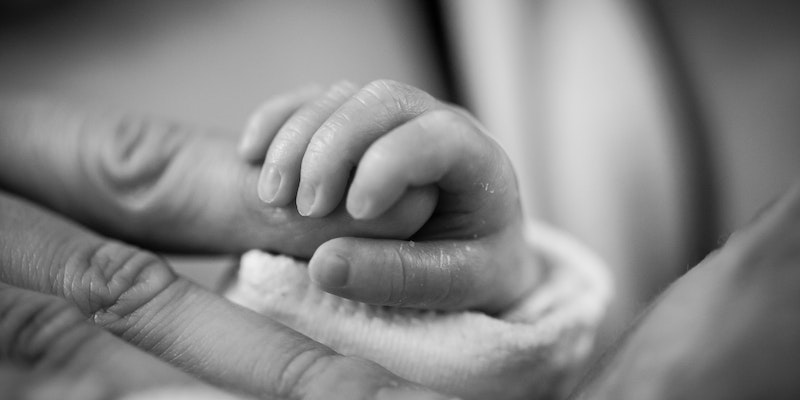Crying has long been a source of mystery and confusion for many people. We often associate crying with negative emotions, like heartache or shame, but is it possible that releasing those tears can actually be beneficial? In this blog post, we’ll explore the emotional and physical benefits of crying and uncover how letting out a few sobs may do more for our wellbeing than we realize. From promoting mental clarity to mitigating stress hormones, the healing powers of tears are worth discovering. So if you ever find yourself in a puddle of your own salty liquid sorrows, just remember—it might be more helpful than harmful!
Introducing Crying - What it is, and how it can Help?
Have you ever found yourself overcome with emotion and unable to hold back the tears? While crying may be seen as a sign of weakness or vulnerability, it is actually a powerful tool for emotional release and healing. The act of shedding tears is a natural way for our bodies to release pent-up emotions and stress, providing a sense of relief and comfort. Crying can help to strengthen interpersonal connections by signaling a need for comfort and support from those around us.
Examining the Physiological Benefits of Crying:
Crying is a natural human response that is often associated with negative emotions, such as sadness or frustration. However, recent research has shown that crying can actually have a number of physiological benefits for the body. For instance, tears help to clear toxins and other harmful substances from the eyes, while also reducing stress and promoting relaxation.
Crying has been linked to increased production of feel-good endorphins that may help to alleviate pain and boost mood. While many people may feel embarrassed or ashamed about crying, this common emotional response may actually play an important and healthy role in our overall wellbeing.
Investigating the Psychological Benefits of Crying:
Crying is a natural human response to emotions such as sadness, happiness, frustration, or even relief. While crying is often associated with negative feelings, recent studies suggest that there are actually psychological benefits to shedding tears. For instance, crying can release stress hormones, reduce tension, and improve mood. Crying may improve social bonding, as it can evoke feelings of empathy and support from others.
How We React to Others' Tears?
Human tears are a unique display of emotion, evoking sympathy and a range of responses from those around us. Witnessing someone cry can make us feel uncomfortable, and our first instinct is often to console them. This reaction is ingrained in us from a young age, and studies show that babies as young as six months old display empathy towards others who are upset.
Our response to someone crying is not always automatic. Sometimes we may feel overwhelmed or unsure of how to react, leading us to withdraw or avoid the situation altogether. It's important to remember that tears are a natural expression of emotion, and being present for someone who is crying can offer the support they need.
Exploring Different Types of Tears:

Tears are one of the most intriguing human bodily functions. They serve as a powerful form of communication, conveying an array of complex emotions that we may not even be aware of. But not all tears are created equal.
There are different types of tears, each serving their own unique purpose. For example, emotional tears are shed in response to feelings of sadness, joy, or anger, while reflex tears help to flush out irritants from our eyes. Whether it's tears of joy after receiving good news or tears of frustration after a long day, each tear can tell a story about our innermost feelings and experiences.
Learning to Cope with Emotional Outbursts Effectively:
Emotions are a fundamental part of human life. Everyone experiences them differently, and sometimes they can lead to emotional outbursts that can be overwhelming for both the person experiencing them and those around them. There are ways to learn how to cope with emotional outbursts effectively. One way is to identify triggers that lead to these outbursts and find ways to avoid or manage them.
Practicing relaxation techniques such as deep breathing or meditation can help individuals regulate their emotions. Seeking therapy or counseling can also be a useful tool in learning how to cope with emotional outbursts.
Practical Strategies for Dealing With Stressful Situations That Involve Tears:

Stressful situations are simply a part of life, and sometimes the best way to cope with them is to shed a few tears. But what if you're in a situation where crying could be perceived as unprofessional or inappropriate? There are a few practical strategies you can try to help yourself hold back the tears.
- Take deep breaths: When faced with a stressful situation that may lead to tears, take a few moments to focus on your breathing. Deep breaths can help calm the mind and body, allowing you to approach the situation with a clearer head.
- Express yourself: If you feel overwhelmed and tears start flowing, it's important to communicate your feelings. Whether it's through talking to a trusted friend or writing in a journal, expressing yourself can help release pent-up emotions and provide a sense of relief.
- Take breaks when needed: It's okay to take a step back from a stressful situation if it becomes too overwhelming. Excuse yourself for a few moments to gather your thoughts and emotions before returning to the situation.
- Seek professional support: If you find yourself frequently facing stressful situations that lead to tears, it may be beneficial to seek professional support from a therapist or counselor. They can help you develop coping strategies and provide a safe space for emotional release.
- Practice self-care: Taking care of your physical and mental well-being is crucial in managing stress and emotionally charged situations. Make sure to prioritize self-care activities such as exercising, practicing mindfulness, and getting enough rest to maintain a healthy balance.
Conclusion:
Crying can be a very powerful tool to combat stress, help us cope with difficult emotions, and express ourselves in a safe and healthy way. Whether we’re in the middle of our own breakdown or comforting someone else who is, it’s important to understand that different types of tears all serve different purposes. Not only do tears have physical and mental health benefits, but they can also deepen our connections to those we care about.




